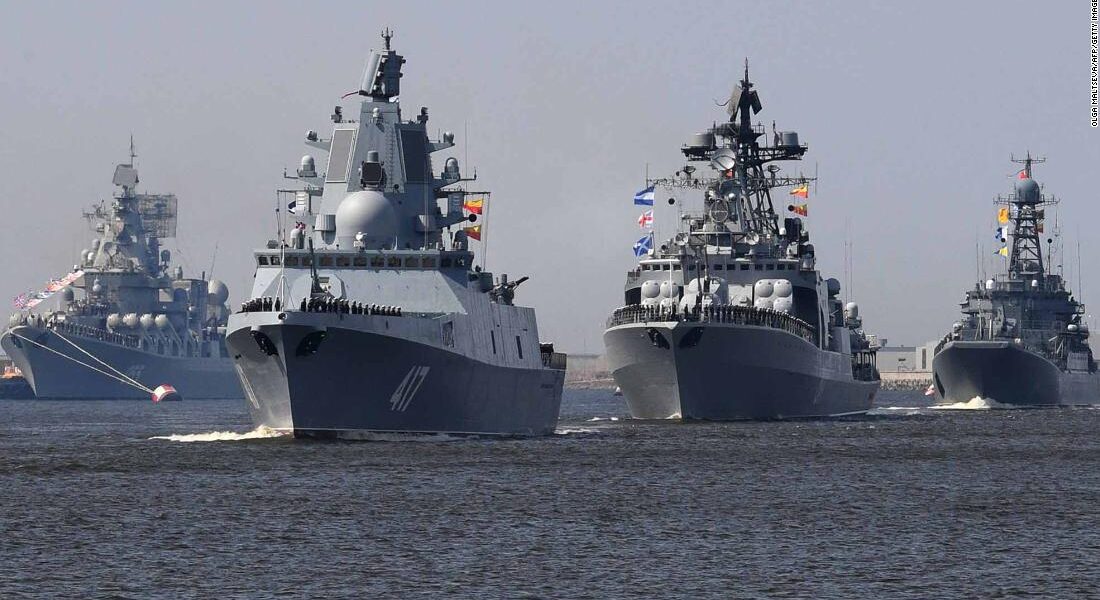News circulated in the Greek press yesterday that Russia supports Turkish claims in the East Mediterranean, but this was quickly denied by not only Moscow, but also the Russian Embassy in Athens that described the allegations as "fake news."
At a time of high volatility between Greece and Turkey, many in Greek media known for having strong pro-NATO tendencies have been exposed for attempting to shift the blame on why Turkey is behaving aggressively. Despite decades of NATO and European Union appeasement towards Turkey at the expense of Greek security, sovereignty and interests, some in Greek media have attempted to portray Turkey's delinquency in the East Mediterranean due to Russia's complicated relations with Ankara.
Russian Foreign Ministry spokeswoman Maria Zakharova denied the allegations that Russia supports Turkish provocations in the East Mediterranean on Thursday afternoon.
"We are not looking to take advantage of cross-border disputes. This approach also applies to the East Mediterranean, an explosive region. Russia advocates resolving disputes only through political dialogue," said the experienced Zakharova.
Zakharova also said that allegations of Turkey's aggressive actions in the East Mediterranean are due to Moscow's support is "provocative."
In the same briefing, Zakharova stated "such reasoning can only be described as provocative."
She went on to say that Russia is not seeking benefits through transnational conflicts and problems, which "fully applies to such a sensitive and explosive region like the East Mediterranean. We are not pushing anyone to act aggressively. Our cooperation, especially with Turkey, is not directed against third countries."
The Russian Embassy in Athens also defended itself from the allegations made by Greek media.
"Unfortunately, we are seeing a further escalation of hysteria over Russian Navy exercises in the East Mediterranean. Allegations of a lack of understanding of basic NAVTEX issuance procedures for naval exercises in international waters continue," the Embassy stated in a Twitter thread.
Δυστυχώς, διαπιστώνουμε την περαιτέρω κλιμάκωση της υστερίας σχετικά με τις ασκήσεις του Ρωσικού Πολεμικού Ναυτικού στην Αν.Μεσόγειο.
Συνεχίζονται οι ισχυρισμοί που αποδεικνύουν την έλλειψη κατανόησης στοιχειωδών διαδικασιών έκδοσης NAVTEX για ναυτικές ασκήσεις στα διεθνή ύδατα. pic.twitter.com/KvdDjZGC6G
— Rus Embassy, Greece (@RFEmbassyGr) September 4, 2020
"In the case of naval exercises, the World Navigation Warning Service (WWNWS) was notified," according to the Embassy, adding that "speculation to the contrary is unacceptable and exposes their cunning producers."
"The attempt of some media to silence the complaint from the Russian side of yesterday's fake news about so-called Russian 'backing' of Turkey also caused an unpleasant impression," the Embassy continued to say on Twitter.
The Embassy then called for Greek media to reverse their "slanderous" fake news.
"We call on those Greek media outlets that have spread slanderous 'information' to publish immediately and in accordance with ethical rules the publication of the necessary refutation in such cases," the Embassy concluded.
Between September 8-22 and September 17-25, Russia and Turkey will hold live fire exercises in the area where Turkish warships are currently escorting the Turkish Oruç Reis research vessel. This comes at a time when Greece and Turkey have been the closest to war since the latter's invasion of Cyprus in 1974.

